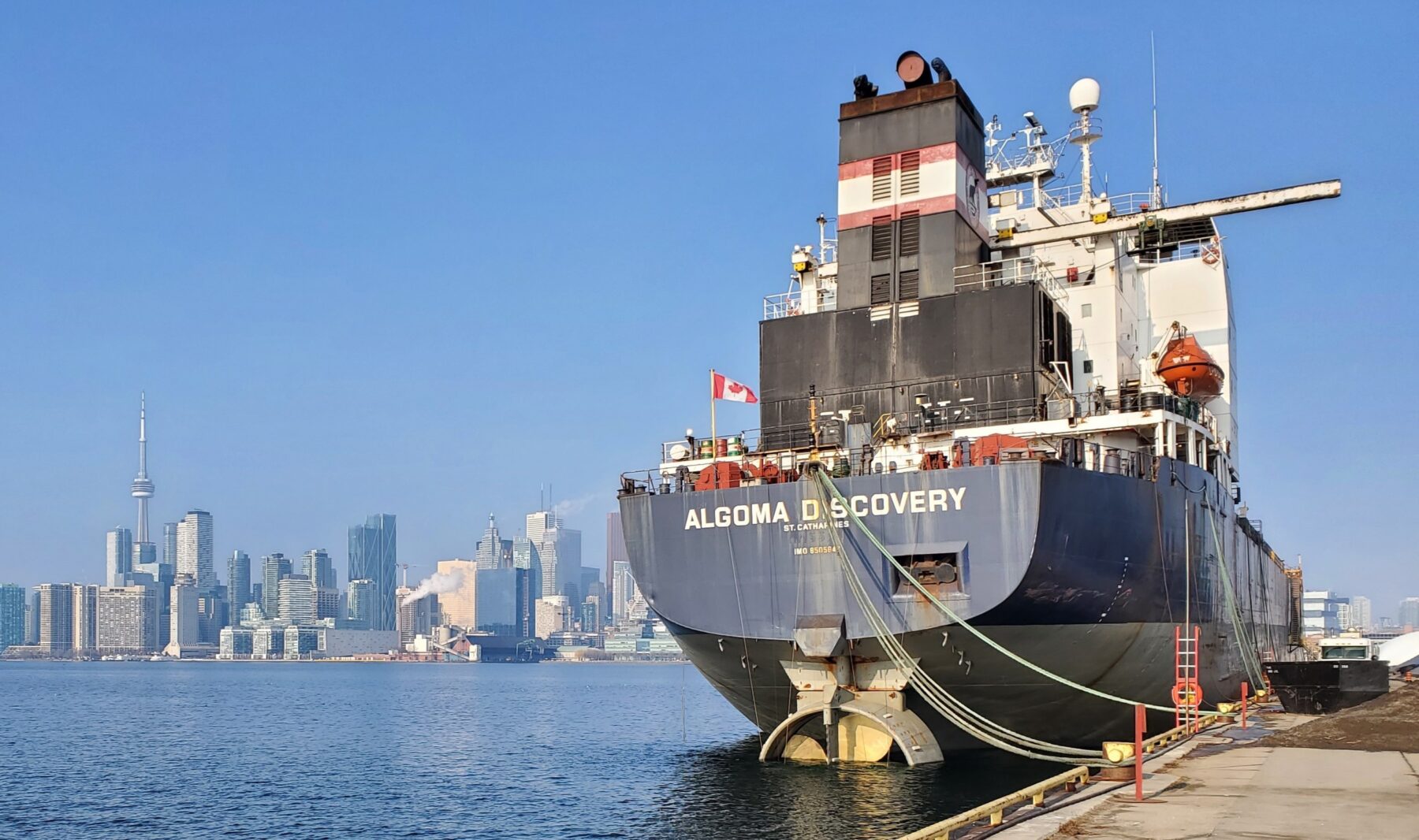What budget 2023 does for the construction sector
It will impact labour, procurement, supply chains and much more.

The federal budget is looking to create a cleaner economy as Canada looks to meet aggressive climate targets.
On Tuesday, Finance Minister Chrystia Freeland tabled the 255-page budget which forecasts a $40.1 billion deficit for 2023-24. The SiteNews team read through the documents and picked out everything that is relevant for the construction industry.
Going green
The Canada Infrastructure Bank plans to invest at least $10 billion through its Clean Power priority area, and at least $10 billion through its Green Infrastructure priority area. This will allow the Canada Infrastructure Bank to invest at least $20 billion to support the building of major clean electricity and clean growth infrastructure projects.
Ottawa is looking to expand tax credits for investments in carbon capture, utilization and storage (CCUS). It would include dual use heat and/or power equipment and water use equipment, with tax support prorated in proportion to the use of energy or material in the carbon capture, utilization, and storage process. In addition to Saskatchewan and Alberta, credits would be available to projects that store CO2 using dedicated geological storage in B.C. Officials would require projects storing CO2 in concrete to have their concrete storage process validated by a third-party based on an ISO standard prior to claiming the investment tax credit.
The budget proposes to provide $500 million over ten years to the Strategic Innovation Fund to support the development and application of clean technologies in Canada. The Strategic Innovation Fund will also direct up to $1.5 billion of its existing resources towards projects in sectors including clean technologies, critical minerals, and industrial transformation.
The federal government announced the details of the Clean Hydrogen Investment Tax Credit. Levels of support will vary between 15 and 40 per cent of eligible project costs, with the projects that produce the cleanest hydrogen receiving the highest levels of support. The program will extend a 15 per cent tax credit to equipment needed to convert hydrogen into ammonia, in order to transport the hydrogen. The tax credit will only be available to the extent the ammonia production is associated with the production of clean hydrogen.

Supply chains
Supply issues have been one of the top concerns for the construction sector since the beginning of the pandemic. While Ottawa has yet to release its National Supply Chain Strategy, officials are proposing millions to bolster the system.
Budget 2023 would allocate $27.2 million over five years to Transport Canada to establish a Transportation Supply Chain Office to work with industry and other orders of government to respond to disruptions and better coordinate action to increase the capacity, efficiency, and reliability of supply chain infrastructure.
$25 million over five years would go to Transport Canada to work with Statistics Canada to develop transportation supply chain data that will help reduce congestion, make our supply chains more efficient, and inform future infrastructure planning. This measure will be advanced using existing Transport Canada resources.
Officials plan to introduce amendments to the Canada Transportation Act to provide the minister of transport with the authority to compel data sharing by shippers accessing federally regulated transportation services.
They also want to introduce amendments to the Canada Transportation Act for a temporary extension, on a pilot basis, of the interswitching limit in the prairie provinces to strengthen rail competition and launch a review of the Shipping Conferences Exemption Act to improve marine shipping competition.
The budget called these measures are a “down payment on Canada’s National Supply Chain Strategy” which is expected to be released in the coming months.
Elsewhere in the budget, officials focused specifically on rail, proposing to provide $210.0 million over five years, with $117.4 million in remaining amortization, to VIA Rail to conduct maintenance on its trains on routes outside the Québec City– Windsor Corridor and to maintain levels of service across its network.

Indigenous participation
The budget states that more effort must be made to include Indigenous people in consultation on major projects and they should have more opportunities to benefit from such projects.
The budget would allocate $19.4 million over five years to Crown-Indigenous Relations and Northern Affairs Canada for the Northern Participant Funding Program. The funds would be used to increase the participation of Indigenous Peoples and other Northerners in environmental and regulatory assessments of major projects. $1.6 million would go to the Canadian Northern Economic Development Agency for the Northern Projects Management Office to increase capacity for federal participation in environmental assessments and consultation with Indigenous communities on major projects in the territories.
The budget also calls for the Canada Infrastructure Bank to provide loans to Indigenous communities to support them in purchasing equity stakes in infrastructure projects in which the bank is also investing. These loans will be sourced from the Canada Infrastructure Bank’s existing funding envelope.
Labour
Need tools? Ottawa wants to double the employment deduction for tradespeople’s tool expenses from $500 to $1,000.
Officials also intend to introduce tax changes to facilitate the creation of Employee Ownership Trusts. They believe this would make selling the business to employees a more attractive proposition for owners looking for an exit.
The budget would provide additional $625 million in the Labour Market Transfer Agreements to ensure Canadians continue to have access to the supports they need to get their next job.
To ensure the success of the Work Sharing program, the budget would provide Employment and Social Development Canada with $5.4 million over three years. The Work-Sharing Program helps avoid layoffs during temporary decreases in business activity by providing income support through the Employment Insurance program to eligible employees who work a reduced week while their employer recovers.
Officials are proposinglabour requirements for the Clean Technology and Clean Hydrogen Investment Tax Credits. To be eligible for the highest tax credit rates, businesses must pay a total compensation package that equates to the prevailing wage. Additionally, at least ten per cent of the tradesperson hours worked must be performed by registered apprentices in the Red Seal trades.
The government also intends to apply labour requirements related to the prevailing wage and hours worked by registered apprentices to the Investment Tax Credit for Carbon Capture, Utilization, and Storage, and the Investment Tax Credit for Clean Electricity. Further details will be provided at a later date. In all cases, the requirements would begin on Oct. 1
The budget would change the way strikes work. Officials plan to table amendments to the Canada Labour Code this year that would prohibit the use of replacement workers during a strike or lockout, and improve the process to review activities that must be maintained to ensure the health and safety of the public during a work stoppage.
Quebec transit
One of the few projects specifically highlighted by the budget was renewing the Bonaventure Expressway. Officials are looking to spend $47.8 million over nine years with $225.5 million in remaining amortization, with Jacques Cartier and Champlain Bridges Incorporated to redevelop the federal portion of the Bonaventure Expressway into an urban boulevard. Budget 2023 also proposes to providing $576.1 million over five years, with $192.3 million in remaining amortization, to operate, maintain, and repair infrastructure in the Greater Montreal Area.

Procurement measures
The government plans to undertake targeted engagement with provinces and territories, industry stakeholders, and workers and unions on “concrete reciprocal procurement measures”. The proposed measures will include placing conditions on foreign suppliers’ participation in federally-funded infrastructure projects, applying strict reciprocity to federal procurement, and creating a preference program for Canadian small businesses.

